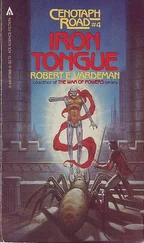“Furthermore,” mused the detective, “whoever did it isn’t worth a damn, if you know what I mean.”
“I’m not sure I do.”
“Well, there’s various kinds of poisonings, Mr. Chornyak. There’s the kind that’s meant to kill, with a great whopping fatal dose all at one time — this sure as hell wasn’t that. And then there’s the kind that’s meant to kill slowly, small doses given over a year or so, and the victim growing sicker and sicker — but with that plan, they never would have used a dose that would make your kid so sick so fast… and they would have used something that was harder to trace and analyze. That’s not it, either.”
“What else is there?”
“There’s the kind where the poisoner doesn’t really want to kill anybody. He does it for malice, because he enjoys seeing the victim suffer, for instance. Or he does it out of ignorance — say it was another child, that fancies himself a poisoner because he’s seen it on a threedy and thinks it’s exciting, but he doesn’t really understand that what he’s doing is dangerous.”
“Well? Do you see this business as either of those?”
Morse chewed on his mustache and screwed up his forehead, and then he shook his head.
“Naw,” he said. “Hell… it’s possible it was a kid. Maybe. But how a kid would have known to put those particular herbs together, or even which ones would be poisonous, I don’t see. And I don’t see where a kid would have gotten them, Chornyak. Those weren’t dandelion greens and daisy petals, you know, that was some pretty exotic stuff. But the malice bit… would that come in here? Would anybody pick out just that one child, for malice?”
“I don’t know, Morse. I don’t know at all.”
“Is there any reason, Chornyak, why somebody would be jealous of your daughter Nazareth? Is she… oh, spectacularly beautiful, maybe? Spectacularly brilliant? Anything like that?”
Thomas shook his head, and laughed. “She’s not unpleasant to look at, but that’s as far as it goes — just a plain ordinary gawk of a girl. And as for brilliance… her linguistics skills tests are clear off the scales, the highest we’ve ever recorded in the Lines… but only a few of the adults know that, close family members. And none of them would be such fools as to let the information get out for general knowledge where it might cause jealousy. So far as I know, people view Nazareth as an ordinary, reasonably well-liked, very busy linguist child, with nothing to set her off. You realize that there is a sense in which any linguist child is unusual — but not to other linguists.”
“I see,” said Morse. “Well, have you got anyone on the place that’s mentally just plain defective, sir? A retarded adult, for example?”
No… nothing like that. We never have had, to my knowledge.”
“Well, you see, the malicious kind, they’re always a certain kind of person. Retarded sometimes — that’s why I asked — cunning, but not intelligent, you know? And whatever the situation, they love to cause a commotion. They love attention, and everything in an uproar, and the feeling of power that they’re causing it all. They enjoy seeing pain, or they’re indifferent to it — they’re very sick people, as a rule. And always, always and without exception, they are fiendishly clever, Mr. Chornyak. They’re terribly hard to catch, and they enjoy the bloody hell out of running rings around the authorities and proving how easy it is to trick everyone. This isn’t like that, you see. This isn’t like that at all. It’s inefficient and disorganized and — well, it’s just bumbling about, as if the poisoner was either completely confused or maybe didn’t really have his heart in it. If you’ll pardon a joke at a serious time, sir, if a committee was supposed to poison somebody, this is how I’d expect it to look. An amateur committee at that.”
“Ah, yes,” said Thomas with satisfaction. “I see.” There was nothing like getting someone to look at a problem who actually knew what he was supposed to know and could get right to the heart of it.
“It makes perfectly good sense, Chief Morse.” He went on. “I understand exactly what you mean. But doesn’t it leave us in a bit of a mess? That is, if this particular poisoning isn’t any of the usual kinds, doesn’t that mean it will be very hard to solve?”
Morse pursed his lips and rubbed at his chin with his thumb.
“I don’t think it’s that bad, Mr. Chornyak,” he said cautiously. “We may never find out why this has been going on — it doesn’t look as if even the poisoner knows why, you see. But it’s got to be somebody that’s warped more than just a little bit — someone very strange indeed. And someone who isn’t clever enough to be very hard to catch. It may be tedious, and it may take a little time, but if you’ll authorize the investigation we can certainly catch this person. And I might add, sir, that if you don’t authorize it we will have to get on with it all the same — poisoning’s not looked on with much favor by the law, you know, no matter how badly it’s done. Even when the outcome of the investigation is inconvenient.”
“Inconvenient? A curious word, under the circumstances.”
“Well, you can see for yourself, sir — it’s pretty nearly impossible that this could be anybody except a member of your family. And that always means an unpleasant time for everybody.”
“Oh, I hadn’t thought of that,” said Thomas. “Of course. But never mind, my friend. If we’ve got a poisoner, let alone an incompetent poisoner, under this roof, let’s get the bastard.”
“I’m glad to hear you take it like that, Chornyak.”
“There’s some other way to take it?”
“Sometimes people are outraged at the very idea that it could be one of their own, sir. And sometimes they know who it is and they can’t stand to see the person exposed — and that’s perhaps the stickiest of all. You never know where you are when it’s like that, because you never know who’s lying to you. Or why.”
“We’re not one of those Gothic families with decomposing corpses in the closets, Morse,” said Thomas bluntly. “There’s nobody to protect here. You’ll find no barriers to your investigation in this Household except those put in your way by the person responsible for the poison — naturally, you can’t expect cooperation from the criminal. But as for the rest of us, the quicker you settle this the more pleased we will be.”
“That’s a refreshing attitude, Mr. Chornyak. I’ll get on with it, then.”
“Please do.”
“It was explained to me by the powers-that-be about the need to keep all this very quiet, by the way. I understand… all those children of yours out with the public, scattered all over all the time, you’re very vulnerable. You can put your mind at ease, Mr. Chornyak. I’ll need a few men in here to help me, but there’ll be no leaks. You have my word on that.”
“Good man.”
Thomas assumed the interview was over, and would have stood up to see his visitor out; but Bard Morse sat there, staring at the printout.
“Is there something else, Chief Morse?”
“Well, I was just wondering. It was one of you linguist families that had the baby kidnapped and killed by a Terralone group a while back, wasn’t it?”
Feeling his ghosts coming back to haunt him, Thomas agreed that that was true. Another family, but one of the Lines.
“Well, then… is there anybody on your premises that strikes you as likely to have become a Terraloner on the quiet? It would be like them not to be all that bright about it. Does that give you any ideas?”
“I’d have to think about it,” Thomas hedged, “but offhand I can’t imagine such a thing. Our entire existence, not only now but for generations, has been interaction with extraterrestrials. I’d say we’re unlikely candidates for Terralone.”
Читать дальше












